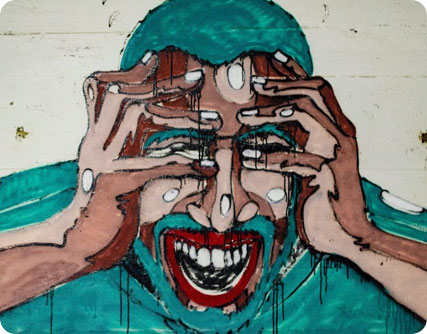Don’t assume it’s your neck or back pain which is keeping you awake at night. It might be a sleep disorder.
Getting a good night’s sleep is essential to good health, so it’s vital to work out what is causing the sleeplessness and not just presume.
Insomnia is the most common sleep disorder, and it can actually cause neck and back pain. It’s sometimes difficult to establish which condition is the culprit. If you are waking up with a sore neck or back, it may be because you were awake most of the night tossing and turning. Eventually, and exhaustedly, falling asleep in a less than comfortable position, can cause pain in the morning.
Insomnia is often caused by emotions such as anxiety or depression. Chronic neck or back pain are also the cause of similar emotional issues.
Sleep disorders are extremely costly to our society. Not just in reduced productivity but also in health and social issues such as accidents and relationship breakdowns.
A GLIMPSE AT SOME RESEARCH FINDINGS
Treating back and neck pain early can prevent serious complications from insomnia.
2013 https://pubmed.ncbi.nlm.nih.gov/23629992/
Rather than causing pain, poor sleep makes existing pain seem more severe the next day.
2018 SLEEP Journal https://doi.org/10.1093/sleep/zsy061.905
The preferred alternative to medications to resolve sleep issues is behavioural therapy. Most of the issues preventing sleep are mental, in the form of negative thoughts. By changing the mental state, sleep can be achieved faster with fewer awakenings during the night.
https://www.sleepfoundation.org/insomnia/treatment/cognitive-behavioral-therapy-insomnia
For patients who are unable to sleep due to chronic back or neck pain, the solution is to reduce the physical pain. It is the pain which is the cause of the anxiety in these cases.
Finding a solution, which is either behavioural or physical, is preferable to masking the situation with medications.
2015 review in Annals of Internal Medicine https://www.acpjournals.org/doi/10.7326/m14-2841
HOW TO ACHIEVE GOOD SLEEP WITH CHRONIC PAIN
Chronic pain and sleep disorders make for a complex relationship. Negative thoughts can quickly cycle into a pattern which is sure to prevent sleep. This cycle needs to be broken by changing the emotions, and behavioural therapies can be an excellent solution.
If a bad night’s sleep is causing the neck or back pain, you may find that this is a temporary physical condition. Most often this can be resolved quite quickly as it is the anxiety which is the main issue.
Chronic back and neck pain can cause negative thoughts indicating that the solution here is to reduce the pain and the thoughts will likely disappear.
HOW TO IMPROVE SLEEP BY REDUCING ANXIETY
If it is negative thoughts preventing you from sleeping, then a psychologist will be the best person to assist you.
It may also be useful to check if you suffer from Sleep Apnoea. This is another sleep condition which may be causing your restlessness and inability to get a good night’s sleep.
HOW TO REDUCE BACK AND NECK PAIN
There are many ways to reduce chronic neck and back pain and the first stop is usually your local doctor to establish the cause of the pain. If it is found to be a spinal issue, rather than some other pathology, the usual cause of treatment is:
Rest and Exercise
A healthy spine likes to move freely, and most minor complaints will respond to some initial rest followed by gentle exercises such as walking, hydrotherapy pool exercises or Pilates.
Physical Manipulation (Physiotherapy, Osteopathy, Chiropractic, Myotherapy)
The spine may need a little extra help and these professional treatments will usually get it working efficiently again.
Pain Relief
If relief is not achieved your doctor may prescribe medications or other pain relief such as injections. Medications are useful for short term relief. If however, they are used to mask the pain longer term, you may want to seriously consider alternatives as they can be addictive.
Surgery
Should none of the above provide long term relief your doctor may refer you to a specialist who will assess your suitability for spinal surgery.
Alternatives to Surgery
If spinal surgery is not an option, then Non Surgical Spinal Decompression may be suitable. The procedure is usually effective for disc related issues, such as bulging or herniated discs, or where physical relief from pressure on nerves is required.
For more information on non surgical options visit https://nonsurgicalspinalcare.com.au/









